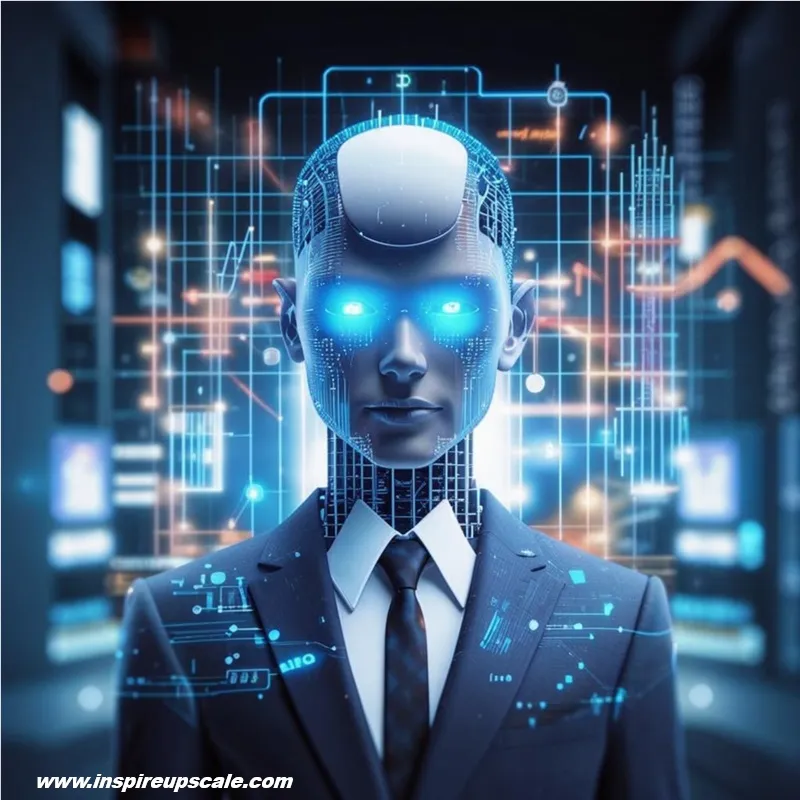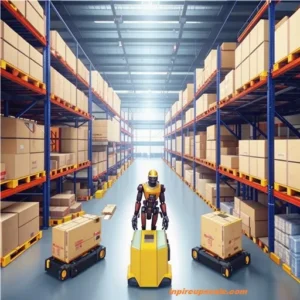Introduction: The Rise of AI in Modern Business
Artificial intelligence in companies is no longer a futuristic concept—it’s a $1.8 trillion industry reshaping how organizations operate, innovate, and compete. From automating workflows to predicting consumer behavior, AI in companies has become a cornerstone of digital transformation.
Key Stats:
84% of enterprises say AI is critical to their growth strategies.
Companies using AI report a 25% average increase in operational efficiency.
🔍 What is Artificial Intelligence in Companies?
AI in companies refers to the integration of machine learning (ML), natural language processing (NLP), and predictive analytics into business processes. These technologies enable tasks like data analysis, decision-making, and customer interactions to be automated or enhanced.
Core Components:
Machine Learning: Analyzes data patterns to predict trends.
NLP: Powers chatbots and sentiment analysis tools.
Computer Vision: Used for quality control in manufacturing.

📊 Key Applications of AI in Companies
1. Human Resources: Streamlining Talent Management
AI Recruitment Tools: Automate resume screening and reduce bias. JPMorgan Chase uses AI to draft engaging job ads, boosting applicant quality by 30% 2.
Employee Retention: Predictive analytics identify flight risks, enabling proactive interventions.
Example:
Sephora’s AI chatbot reduced appointment booking time by 40% while increasing conversions by 11% 2.
2. Sales & Marketing: Personalization at Scale
Dynamic Pricing: AI adjusts prices in real-time based on demand and competition.
Hyper-Targeted Campaigns: Netflix’s recommendation engine drives 80% of watched content through personalized artwork and suggestions 2.
Table 1: AI vs. Traditional Marketing 27
| Metric | AI-Driven Marketing | Traditional Marketing |
|---|---|---|
| Click-Through Rate | 450% higher (JPMorgan Chase) | Industry average: 2–3% |
| Cost Per Lead | 31% lower (Wowcher) | Manual A/B testing |
| ROI | 25–35% increase | Limited by human bandwidth |
3. Operations: Predictive Maintenance & Logistics
Supply Chain Optimization: AI forecasts demand, reducing inventory costs by 18%.
Predictive Maintenance: GE uses AI to predict equipment failures with 92% accuracy, cutting downtime by 50%.
4. Customer Service: 24/7 Support
Chatbots: Handle 70% of routine inquiries, freeing human agents for complex issues.
Sentiment Analysis: Monitors social media to gauge brand perception in real-time.
💡 Benefits of AI in Companies
Cost Savings: Delta Airlines saves $50M/year via predictive maintenance 7.
Enhanced Decision-Making: AI-driven analytics reduce errors by 45% in financial forecasting.
Personalization: Amazon’s recommendation engine drives 35% of sales.
ROI Snapshot:
| Industry | Revenue Growth | Cost Reduction |
|---|---|---|
| Retail | 15–25% | 10–18% |
| Healthcare | 12–20% | 20–30% |
| Manufacturing | 18–28% | 15–25% |
⚠️ Challenges of Implementing AI in Companies
Data Quality: 60% of AI models fail due to poor or biased data 7.
Ethical Concerns: Algorithmic bias in hiring tools (e.g., Amazon’s scrapped AI recruiter) 7.
Skill Gaps: 78% of firms lack in-house AI expertise 7.
Mitigation Strategies:
Audit datasets for diversity.
Partner with vendors like IBM or Google Cloud for scalable solutions.

🚀 Future Trends in AI for Companies
Generative AI: Automates content creation (e.g., Microsoft Designer’s AI-generated visuals).
Edge AI: Real-time analytics in IoT devices for smart factories.
Ethical AI Frameworks: GDPR-like regulations to ensure transparency and fairness.
Prediction: By 2030, 65% of Fortune 500 companies will deploy AI-driven emotional recognition tools for customer interactions
🌟 Case Studies: AI Success Stories
1. Netflix: Mastering Personalization
Netflix’s AI analyzes viewing habits to customize artwork and recommendations, reducing churn by 25%.
2. Sephora: AI-Powered Beauty Consultations
Sephora’s chatbot-driven quizzes increased in-store bookings by 11% through personalized product matching.
3. Microsoft: Revolutionizing Internal Workflows
Microsoft’s AI tools, like Designer and Copilot, reduced content creation time by 40%, enabling teams to focus on strategy
🔧 How to Implement AI in Your Company
Assess Readiness: Audit data infrastructure and workflows.
Start Small: Pilot AI in high-impact areas (e.g., customer service chatbots).
Upskill Teams: Invest in certifications for Python, ML, and cloud platforms.
Toolkit:
| Platform | Use Case | Best For |
|---|---|---|
| IBM Watson Studio | Enterprise ML models | Large-scale analytics |
| Microsoft Azure AI | Predictive maintenance | Manufacturing |
| Salesforce Einstein | CRM automation | Sales & Marketing |
📈 Conclusion: Embrace the AI Revolution
Artificial intelligence in companies is reshaping industries, from hyper-personalized marketing to predictive supply chains. While challenges like data quality and ethics persist, the ROI—25%+ efficiency gains, 30% cost savings—makes AI indispensable.
Next Steps:
Audit your data pipelines.
Partner with AI vendors for scalable solutions.
Foster a culture of continuous learning.
The future belongs to businesses that harness AI’s potential. Will yours be among them? 🌟
❓ FAQs: AI in Companies Explained
No—AI augments roles. For example, chatbots handle routine queries, letting agents focus on complex issues
Cloud-based solutions start at $20/user/month, making AI in companies accessible to SMEs
Retail, healthcare, finance, and manufacturing lead in adoption due to high data volumes






2 thoughts on “AI in Companies: Transforming Business into Ultimate & Successful Operations in 2025”
Loved the Article
This article is well-written and insightful!